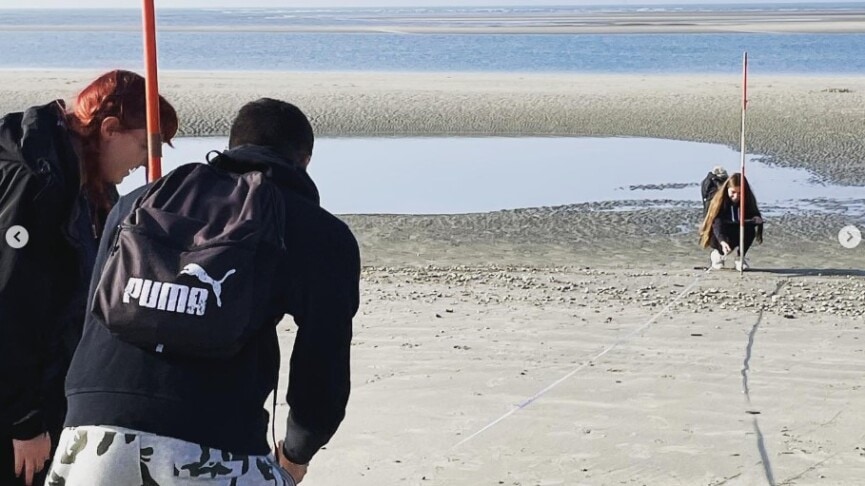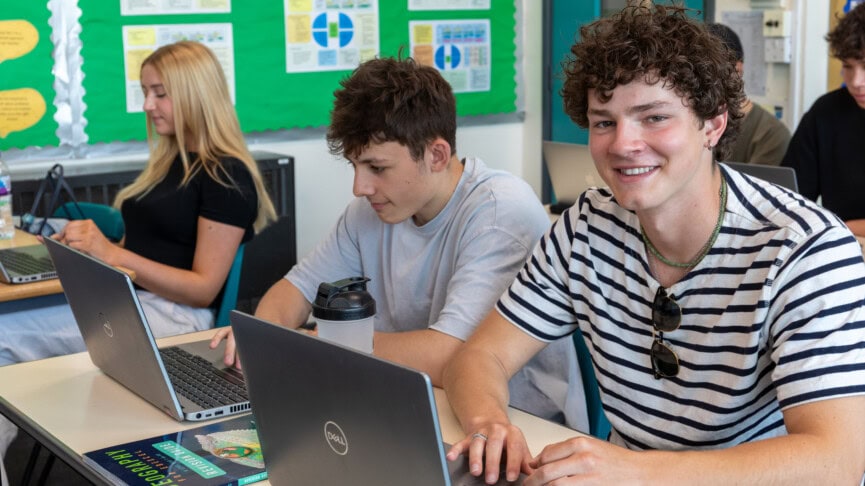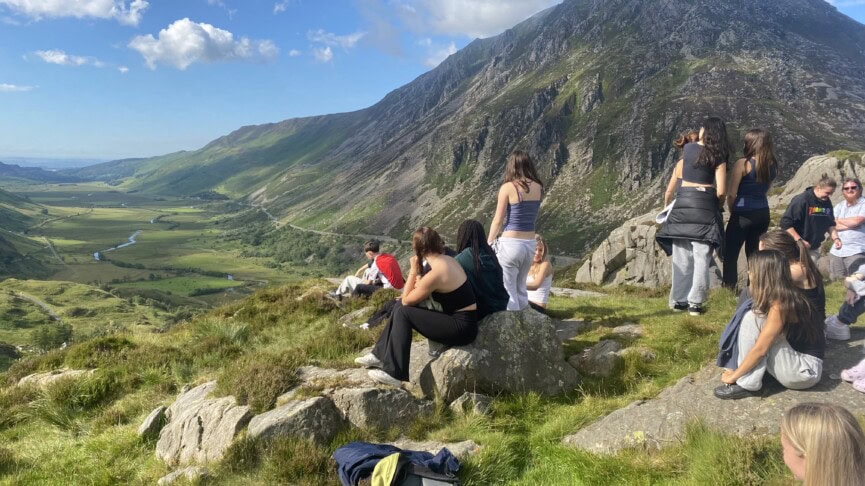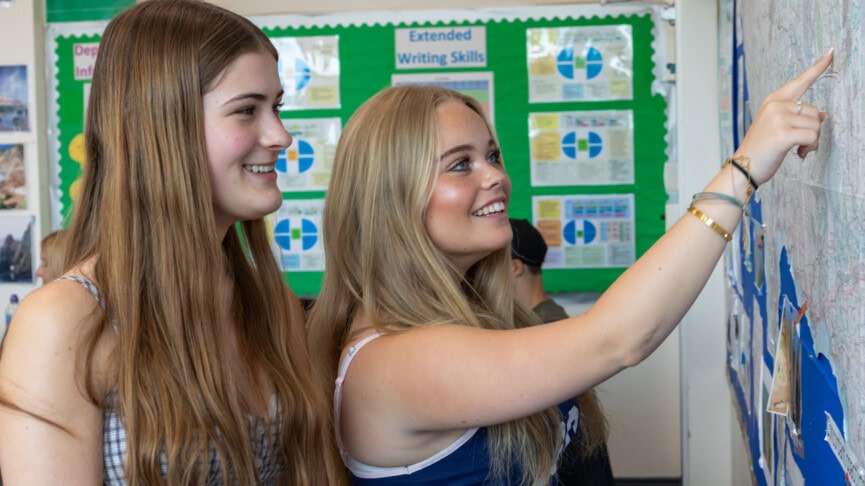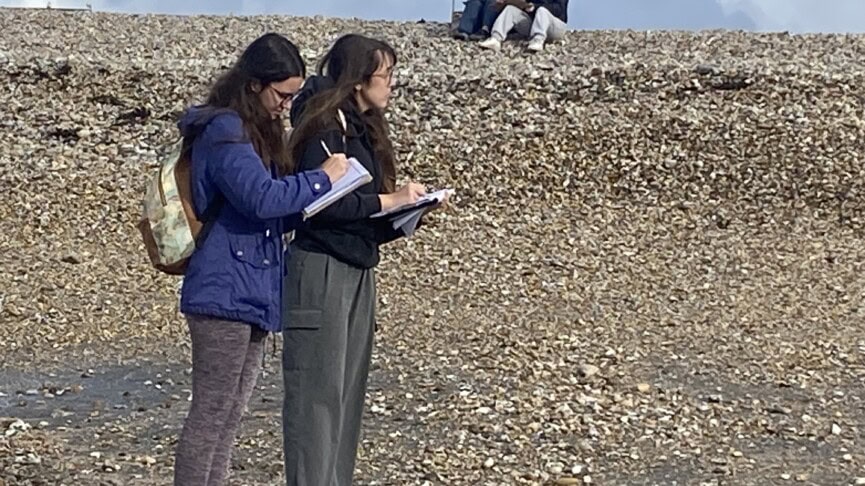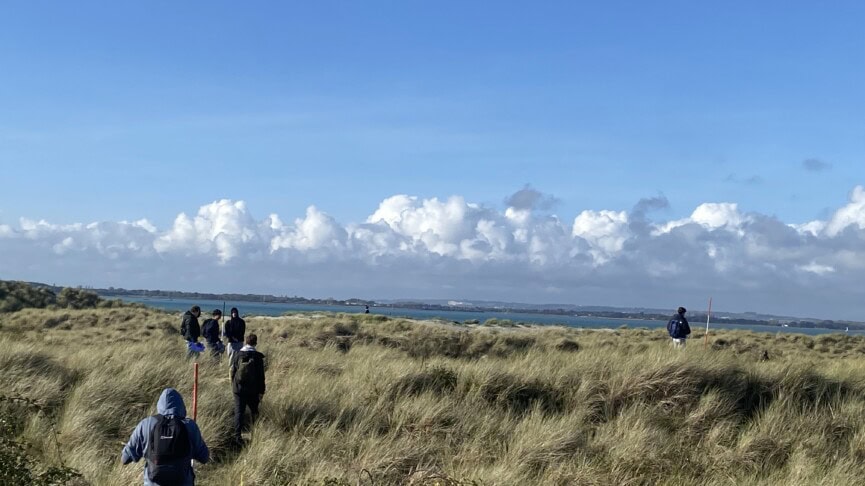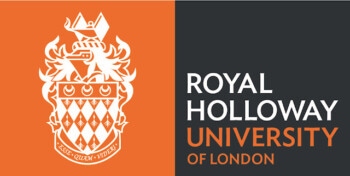Overview
Geography is one of the most exciting, cutting edge and relevant subjects to study in today’s constantly changing world.
The Pearson Edexcel syllabus offers an issues-based approach to studying Geography, enabling you to explore and evaluate contemporary geographical issues such as water security and climate change. Studying Geography will develop your sense of curiosity about the world and will encourage you to ask geographical questions.
Issues that are currently in the news form a central focus to learning and you will be encouraged to deepen your understanding by making connections between different topics. Geography is a subject that links humanities and science, so you will need to be both literate and numerate. Fieldwork is compulsory and you will develop an in-depth understanding of both physical and human geography, which will help you become a critical, reflective, and independent learner.
Entry Requirements
In addition to the College Entry Requirements, to qualify for this course you will also need to achieve a minimum of:’
- Grade 4 in GCSE Maths, English Language, and if taken, a Grade 4 in Geography.
Course Details
The first year of Geography A Level is split between studying Physical Systems and Dynamic Places.
- Physical Systems includes the hydrological and carbon cycles, water and energy insecurity – key issues in today’s world.
- Dynamic Places focuses on Globalisation and Regeneration, with a field trip to East London to evaluate the regeneration schemes in this area. There will be other compulsory, local fieldwork trips to help you develop a range of fieldwork techniques that can be used in your Independent Investigation. Work on this will begin during your first year and it can relate to any aspect of Geography contained in the specification.
The second year comprises of the following:
- Dynamic Landscapes and Sustainability covers Tectonic Hazards and Coastal Landscapes.
- Human Systems and Geopolitics explores the impacts and spheres of influence of global superpowers.
- Global Development and Connections, which looks at Health, Human Rights and Intervention, including conflict and aid.
There will be further work on geographical skills, and you will also prepare for the synoptic paper that builds on the themes of players, attitudes and futures developed throughout the course. In this exam you will be asked to respond to a range of geographical information through analysis and evaluation.
The Geography A Level is split between studying Physical and Human Geography:
Physical Geography
- Physical Systems includes the hydrological and carbon cycles, water and energy insecurity – key issues in today’s world.
- Dynamic Landscapes and Sustainability covers Tectonic Hazards and Coastal Landscapes with a trip to the Witterings to study coastal deposition and the role of vegetation in sand dunes and salt marsh.
Human Geography
- Dynamic Places focuses on Globalisation and Regeneration, with a field trip to East London to evaluate the regeneration schemes in this area. There will be other compulsory, local fieldwork trips to help you develop a range of fieldwork techniques that can be used in your Independent Investigation. Work on this will begin during your first year and it can relate to any aspect of Geography contained in the specification.
- Human Systems and Geopolitics explores the impacts and spheres of influence of global superpowers.
- Global Development and Connections, which looks at Health, Human Rights and Intervention, including conflict and aid.
There will be further work on geographical skills, and you will also prepare for the synoptic paper that builds on the themes of players, attitudes and futures developed throughout the course. In this exam you will be asked to respond to a range of geographical information through analysis and evaluation.
Assessment
80% of the marks are for three written exam papers, each 2 hours 15 minutes long. The exams consist of questions that require a mix of short and extended answers.
20% of the marks are for coursework which is an independent investigation where you will define a geographical issue linked to the specification and carry out fieldwork. This investigation will evidence independent analysis and evaluation of data, presentation of data findings and extended writing of between 3,000 and 4,000 words.
Subject Combinations
Geography is usually recognised as both a Science and an Arts A Level for university entrance criteria and therefore complements a wide variety of subjects. The subjects most frequently combined with Geography include: Mathematics, Biology, Chemistry, Economics, Psychology, Sociology, Politics and History.
University Destinations
Geography A Level is a highly respected qualification, with 90% of our students progressing onto University.
Here are some typical University Destinations that our Geography A Level students go on to.
Click on a destination to see some examples of courses they have taken;

University of Portsmouth
Typical courses: Marine Biology, Environmental Science, Counter Terrorism, Intelligence and Cybercrime

University of Birmingham
Typical courses: Geography with Year Abroad, Politics and International Relations
Careers
As a degree subject, Geography is highly respected by employers and according to the Royal Geographical Society, Geography graduates have one of the highest rates of graduate employment. It attracts a lot of applicants for university as it combines the academic, creative, and analytical skills which are valued in so many careers.
Geography-related jobs include cartography, surveying, environmental consultancy, Geographical Information Systems, and teaching. However, the transferability of geographic knowledge and skills make it one of the most sought-after qualifications for many other careers in fields such as international aid, logistics, finance, tourism and transport.
FAQs
What skills will I need and develop on this course?
You will develop a variety of investigative, cartographic, graphical, ICT and statistical skills, through both fieldwork and assignment activities. You will develop a critical awareness of the appropriateness and limitations of different skills and resources and be able to apply them in an increasingly independent way. Wider skills will include undertaking research, analysis, and teamwork on projects. You will be encouraged to keep up to date with current affairs by reading journals such as Geography Review.
What field work and trips are there?
There are three compulsory fieldwork days required as part of the course that explore both human and physical geography. The department also runs a residential trip to a UK destination each year where students will have the opportunity to study local human, and physical geography, as well as take part in outward bound activities such as canoeing, paddle boarding, and mountaineering.
Students are also encouraged to attend a range of conferences hosted by examiners and the Royal Geographical Society, which happen throughout the academic year.
What extra support is there to help me on this course?
The Geography department runs extra subject tutorials to extend your learning, which includes past paper clubs twice a week. As a department, we have membership with the Royal Geographical Society where you can log in and book to go to free lectures for free, and access free resources and journals. You also have access to free e-Textbooks on Microsoft Teams.
In your second year, the department also runs special workshops on Maths for Geographers as well as offering a progression pathway to get your Geographical Information Systems (GIS) certification, which is an increasingly sought-after skill in the geospatial industry.
You will also be encouraged to use our Learning Resource Centres, which offer an extensive library of 25,000+ books as well as hundreds of e-books, journals and databases that we subscribe to, including Britannica Academic, Issues Online, Geofactsheets, Geofile and Digimap for Schools to name but a few.
How much studying is there each week?
At Esher, as with all your A Levels and BTEC subjects, you will have four timetabled lessons of Geography a week. In addition to this, we expect you to do between six and seven hours of independent study a week which can include watching videos, reading from a textbook, practising questions or making notes.

